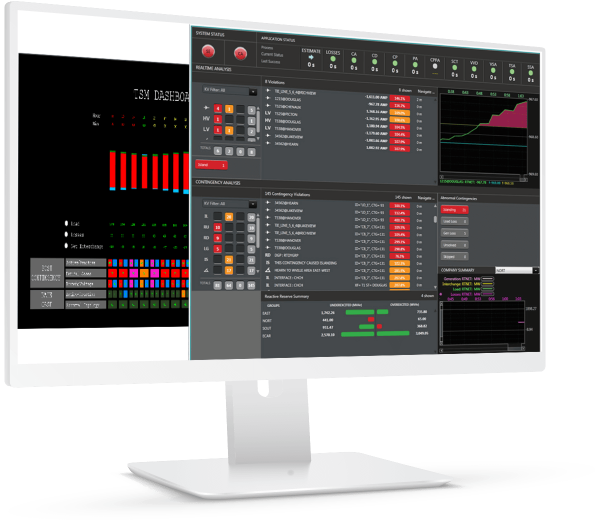Optimizing Tomorrow: Advanced Energy Management Solutions


Mastering Efficiency: The Era of Advanced Energy Management Solutions
In the relentless pursuit of sustainable and efficient energy use, advanced energy management solutions have emerged as game-changers. This article delves into the transformative impact of these solutions, exploring key technologies and strategies that are shaping the landscape of energy management for a brighter and more sustainable future.
Smart Grids and Intelligent Distribution
At the heart of advanced energy management lies the concept of smart grids. These intelligent systems leverage technology, sensors, and real-time data to optimize the distribution of electricity. Smart grids enhance the efficiency of energy delivery, reduce wastage, and contribute to the overall stability of the electrical grid. The integration of smart grid technologies marks a significant step towards a more adaptive and responsive energy infrastructure.
IoT and Energy Monitoring Precision
The Internet of Things (IoT) plays a pivotal role in the realm of advanced energy management. Through interconnected devices and sensors, IoT enables precise monitoring of energy consumption at various levels. From individual appliances to entire industrial processes, this granular level of monitoring provides insights that empower businesses and individuals to make informed decisions about energy usage. The result is a more efficient and optimized energy ecosystem.
Energy Storage Revolution: Beyond Batteries
Advanced energy management extends its reach into the domain of energy storage, ushering in a revolution beyond conventional batteries. While traditional battery technologies remain essential, innovations like flow batteries, thermal energy storage, and even gravity-based storage systems are gaining prominence. These advancements address the intermittent nature of renewable energy sources, offering reliable and scalable solutions for storing excess energy.
Machine Learning Algorithms for Predictive Analytics
Machine learning algorithms are driving predictive analytics in the field of energy management. By analyzing historical data, weather patterns, and consumption trends, these algorithms can forecast energy demand with remarkable accuracy. This predictive capability enables utilities and businesses to proactively adjust energy production and distribution, avoiding inefficiencies and ensuring a more balanced and responsive energy supply.
Decentralized Energy Systems and Microgrids
The rise of decentralized energy systems and microgrids marks a departure from traditional centralized power structures. Advanced energy management embraces the concept of distributed energy generation, where smaller-scale power sources, often utilizing renewable energy, contribute to local grids. Microgrids, capable of operating independently or in conjunction with the main grid, enhance energy resilience and reduce dependency on large-scale centralized power plants.
Energy-Efficient Buildings and Smart Infrastructure
In the realm of advanced energy management, buildings are evolving into intelligent entities. Smart infrastructure integrates technologies such as energy-efficient HVAC systems, automated lighting, and responsive building management systems. These innovations not only enhance occupant comfort but also contribute to significant energy savings by optimizing resource utilization based on real-time data and occupancy patterns.
Electrification of Transportation: Sustainable Mobility
The electrification of transportation is a key component of advanced energy management. Electric vehicles (EVs) and the development of charging infrastructure contribute to a shift away from traditional fossil fuel-dependent transportation systems. By integrating EVs into smart grids and adopting sustainable mobility solutions, advanced energy management extends its influence to the transportation sector, reducing carbon emissions and fostering a more sustainable future.
Blockchain for Transparent and Secure Transactions
Blockchain technology is making inroads into the energy sector, providing a platform for transparent and secure transactions. In energy management, blockchain enables the creation of decentralized energy markets, where individuals and businesses can securely trade excess energy. This peer-to-peer energy exchange fosters a more resilient and adaptable energy ecosystem, allowing for efficient utilization of renewable resources.
Policy Innovation and Regulatory Frameworks
The advancement of energy management is not solely a technological endeavor; it requires innovative policies and regulatory frameworks. Governments and regulatory bodies play a crucial role in incentivizing the adoption of advanced energy solutions. By creating supportive policies, offering incentives, and fostering a conducive environment for innovation, policymakers contribute to the acceleration of advanced energy management practices on a larger scale.
Exploring Further: Advanced Energy Management Solutions for Tomorrow
In conclusion, the era of advanced energy management solutions heralds a paradigm shift towards sustainability and efficiency. To delve deeper into the transformative impact of these solutions, visit Advanced Energy Management. This resource provides valuable insights into the technologies, strategies, and ongoing advancements in the world of advanced energy management, empowering individuals and organizations to be stewards of a smarter and more sustainable energy future.









